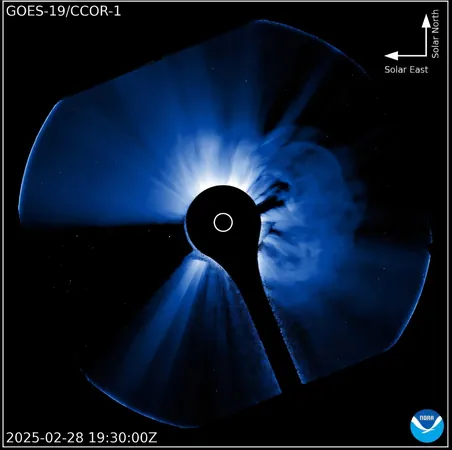
Revolutionary Method Could Transform Brain Cancer Treatment in Children!
2025-03-19
Author: Daniel
Introduction
A groundbreaking study from the University of Pittsburgh School of Medicine and UPMC Children's Hospital of Pittsburgh is set to change the landscape of childhood brain cancer diagnosis and treatment. Researchers and pediatric neurosurgeons have introduced an innovative method that profiles brain cancers based on the immune response, unveiling new possibilities for personalized therapies.
Study Overview
In a recently published article in *Science Translational Medicine*, the research team outlines a diagnostic platform capable of classifying brain tumors by examining the body's immune reaction to cancer. This technique complements traditional methods that focus on microscopic and genetic analysis of tumors. By doing so, it offers a promising avenue to craft tailored treatment plans that leverage each patient’s unique immune response, similar to the successful immunotherapies that have redefined treatment approaches for childhood leukemia.
Insights from the Researchers
Lead author Dr. Itay Raphael notes, "Understanding how the diverse array of immune cells interacts with different types of brain cancer can lead to innovative therapies in the future."
The Need for New Approaches
Brain cancer stands as the second most prevalent cancer among children, trailing only leukemia, and unfortunately, it holds the grim title of the deadliest pediatric cancer. This is largely due to the varied nature of brain tumors which tend to be treatment-resistant and often surgically inaccessible. In contrast, the dramatic decrease in leukemia mortality rates over the years can be attributed, in part, to the rise of immune-based therapies that enhance the activity of T cells—white blood cells specifically trained to recognize and attack cancer cells.
T Cell Mechanics
T cells detect cancerous cells by identifying unique molecules on their surfaces known as antigens. Upon recognizing these targets, the T cells become activated and begin a rapid multiplication process called clonal expansion, aimed at obliterating the tumors while sparing healthy cells.
Key Findings
The new study provides valuable insights into the relationship between tumor characteristics and T cell responses. By analyzing nearly 1,000 pediatric brain tumor samples—gathered through the Children's Brain Tumor Network (CBTN), which includes 35 medical centers worldwide—the researchers discovered that aggressive tumors often exhibited lower levels of T cell expansion compared to less aggressive varieties. This finding suggests that measuring T cell clonality could play a pivotal role in predicting patient outcomes across various tumor types.
Future Directions
Moreover, understanding which T cell-surface receptors are prevalent in the tumor microenvironment may help identify effective treatment strategies, such as targeted cancer-antigen peptide immunotherapy.
Expert Opinions
Co-author Dr. Ian Pollack expresses hope for the future, stating, “We desire a time when T cell expansion parameters are integrated into pediatric cancer diagnostics.” He emphasizes UPMC Children's Hospital’s commitment to advancing brain tumor research and developing life-saving therapies.
Conclusion
This revolutionary study not only illuminates the path for potential new treatments but also marks a significant shift in how pediatric brain tumors will be evaluated and approached in the future. As researchers continue to uncover the mechanisms governing immune responses in brain cancer, the prospect of improved diagnostics and more effective treatments grows brighter.





 Brasil (PT)
Brasil (PT)
 Canada (EN)
Canada (EN)
 Chile (ES)
Chile (ES)
 Česko (CS)
Česko (CS)
 대한민국 (KO)
대한민국 (KO)
 España (ES)
España (ES)
 France (FR)
France (FR)
 Hong Kong (EN)
Hong Kong (EN)
 Italia (IT)
Italia (IT)
 日本 (JA)
日本 (JA)
 Magyarország (HU)
Magyarország (HU)
 Norge (NO)
Norge (NO)
 Polska (PL)
Polska (PL)
 Schweiz (DE)
Schweiz (DE)
 Singapore (EN)
Singapore (EN)
 Sverige (SV)
Sverige (SV)
 Suomi (FI)
Suomi (FI)
 Türkiye (TR)
Türkiye (TR)
 الإمارات العربية المتحدة (AR)
الإمارات العربية المتحدة (AR)